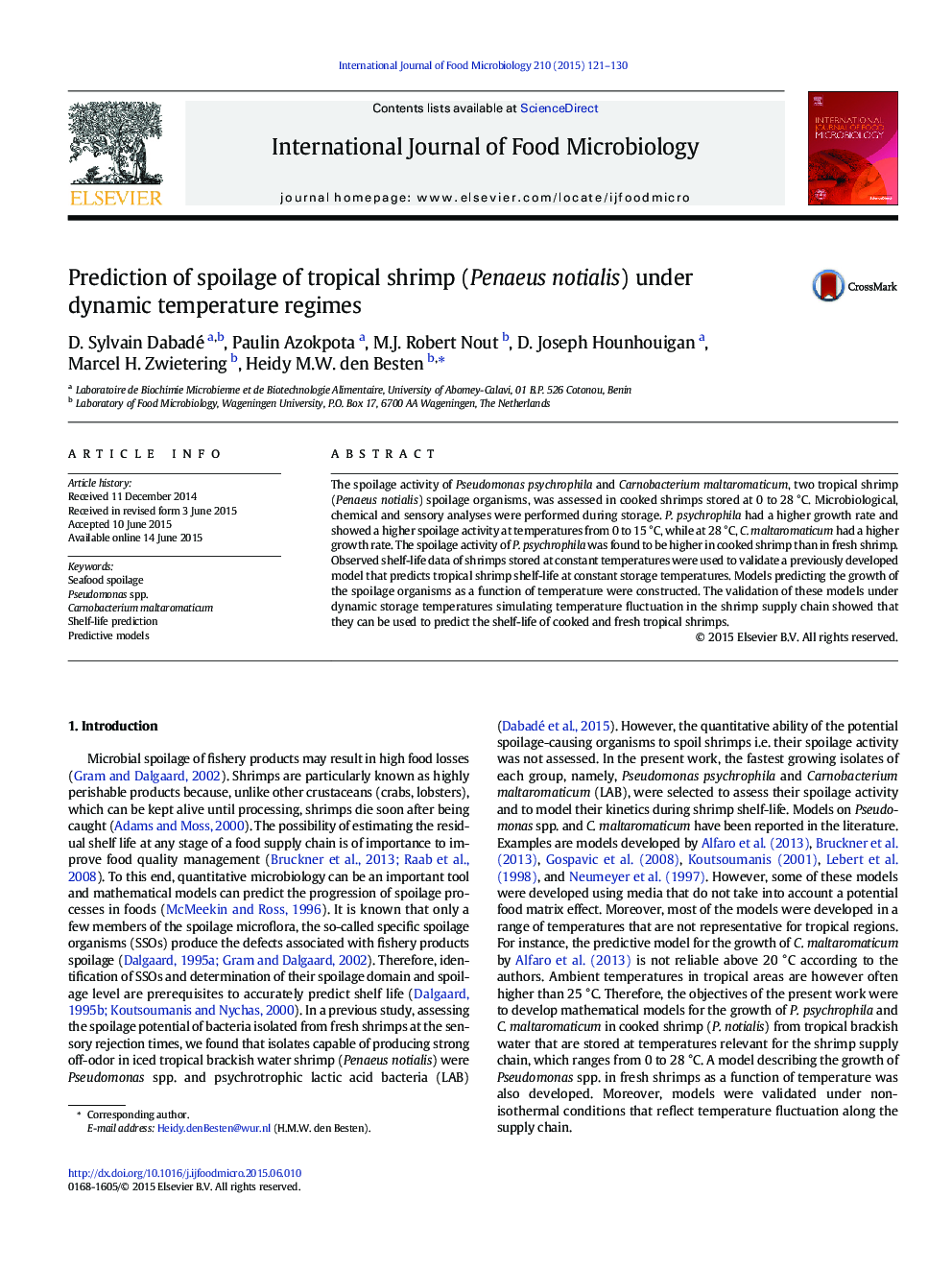| Article ID | Journal | Published Year | Pages | File Type |
|---|---|---|---|---|
| 4366494 | International Journal of Food Microbiology | 2015 | 10 Pages |
•Spoilage activity of two main shrimp spoilage bacteria was assessed between 0 and 28 °C.•P. psychrophila spoilage activity was higher than C. maltaromaticum between 0 and 15 °C.•A model predicting shrimp shelf-life at constant storage temperature was validated.•Models predicting shrimp shelf-life were validated under dynamic conditions.
The spoilage activity of Pseudomonas psychrophila and Carnobacterium maltaromaticum, two tropical shrimp (Penaeus notialis) spoilage organisms, was assessed in cooked shrimps stored at 0 to 28 °C. Microbiological, chemical and sensory analyses were performed during storage. P. psychrophila had a higher growth rate and showed a higher spoilage activity at temperatures from 0 to 15 °C, while at 28 °C, C. maltaromaticum had a higher growth rate. The spoilage activity of P. psychrophila was found to be higher in cooked shrimp than in fresh shrimp. Observed shelf-life data of shrimps stored at constant temperatures were used to validate a previously developed model that predicts tropical shrimp shelf-life at constant storage temperatures. Models predicting the growth of the spoilage organisms as a function of temperature were constructed. The validation of these models under dynamic storage temperatures simulating temperature fluctuation in the shrimp supply chain showed that they can be used to predict the shelf-life of cooked and fresh tropical shrimps.
